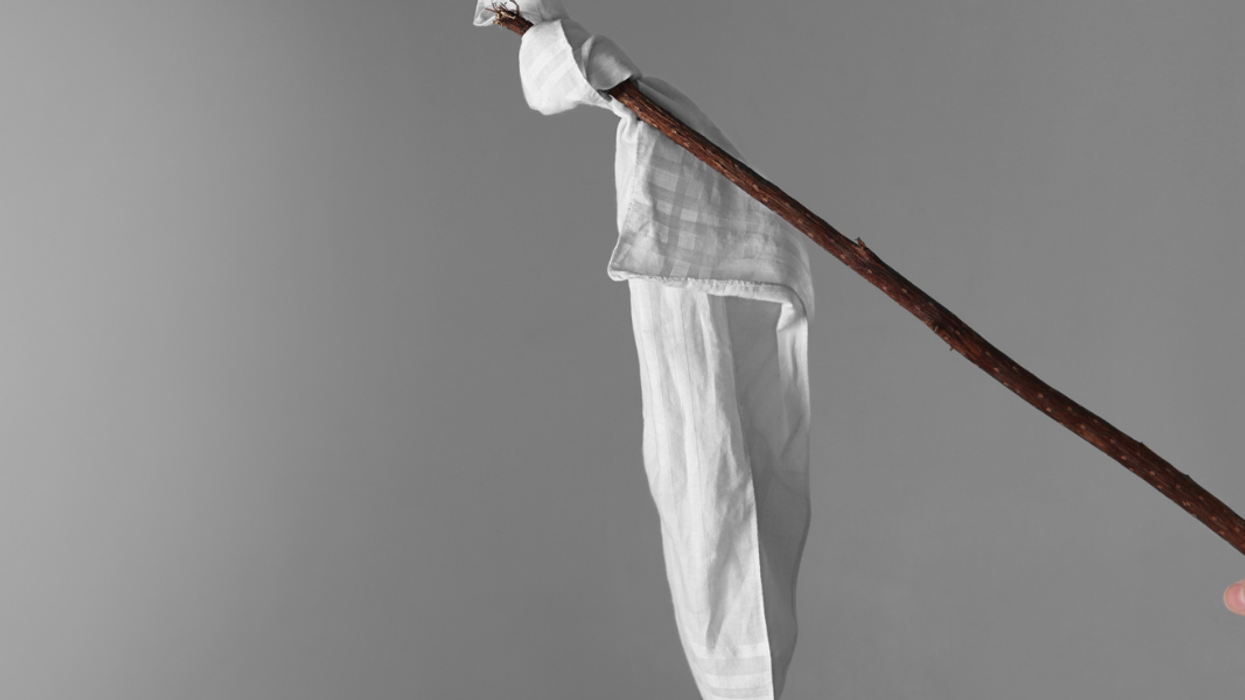LaRue writes at Structure Matters. He is former deputy director of the Eisenhower Institute and of the American Society of International Law.
“On the advice of my doctors, their direction actually, I must withdraw as a candidate for president of the United States.”
Could Donald Trump really utter those words? As likely as not.
Consider what he knows: His odds of bucking conventional wisdom as he did in 2016 are very low. Even if he wins the Republican nomination for president next summer, his slim chances in the general election are eroding further. Such wisdom may never be tested, however, if he quits before facing a loss he cannot get close to derailing.
Trump says he will soldier on no matter what. Just a common lie, with the big one to follow. The facts – the voters have spoken against him all four times, from 2016’s three-million vote margin to 2022’s red fizzle – demolish all reasons for him to remain on the ballot until November 5, 2024.
His pending loss is even more likely, given that his culpability for his legal troubles is seriously damning and could soon include more indictments. His MAGA base is notably thinner and barely paying lip service against his arrests. Trump’s ultimate demise becomes clearer as prominent former Republican backers publicly peel away, such as Senator John Cornyn did in May.
Trump has little choice but to bring out his exit strategy, a path he counts on having – bankruptcy, anyone? – for his every endeavor. His 2024-campaign version could have been his plan from the beginning, or it is at least contending now for his preferred course of action: Withdraw because of poor health news.
This excuse would be believable. At age 78 in January 2025, he would be as old as Joe Biden was when he entered the White House in 2021. Add Trump’s physique to any prognosis and he has plausible health reasons that could necessitate dropping out. He would blast Biden “for not withdrawing in 2020 the way he should have, as I’m doing now,” and could even blame the “witch hunt” for exacerbating his chosen illness. The Next Big Lie rests easily in his back pocket.
It may seem odd to suggest that Trump would seek to save face by faking illness, but such a lie is not out of bounds for our nation’s most treasonous grifter. Perhaps his prior claims of good health were false and his new health excuse would be both old and real. Either lie would be true to form.
When he makes this announcement is anyone’s guess. While he will walk away in a healthy or unhealthy heartbeat, he will do so when it is most advantageous to him. This timing decision is his last grasp of control.
Odds are that he stays in the race as long as possible to be in and monetize the spotlight, and perhaps even to wallow in a MAGA-led convention lovefest. These goals are narcissistic enough to have been his only ones from the start, as he could have entered the race never intending to finish it. Does anyone think Trump cares about the upheaval he would cause by dropping out just before Labor Day?
(That a convention swan song remains possible is due to the dysfunctional nominations process, which uses low-vote, multi-candidate primaries that advance first-past-the-post, plurality winners. It must be changed to reduce the risk of selecting future undemocratic outliers who cannot earn majority support.)
But Trump might depart before the primaries in order not to jeopardize his chance of earning a pardon from a Republican victor. If he waits until after the convention to depart, he does risk making it harder for his Republican successor to win, notwithstanding how he will rip into “the even older guy” on his way out.
And he could still hang on until the bitter end. But that would only give Trump two more months in the brightest spotlight, which may not be enough to accept if it also means swallowing the reality of his fifth straight loss.
So he will exit the ring rather than wait for the count.
Idle speculation? Giving him too much credit for such deliberation? Perhaps, but we have previously underestimated his willingness to go to unimagined extremes. Without the tools of incumbency, his desperation may lead him to surprise us. Anything remains possible when it comes to Trump.
If he uses the Next Big Lie to step away, we can take little comfort in knowing that he will not again be president. His closing acts will be destructive, and Trumpism and election denialism will remain, even if weakened.
Let us prepare for the reconstruction to follow; it always has, whether after the Civil War, the Gilded Age, or other polarized periods. (And let’s not forget the Electoral College’s role in putting him in the White House to begin with – a second core problem to fix.)




















Trump & Hegseth gave Mark Kelly a huge 2028 gift